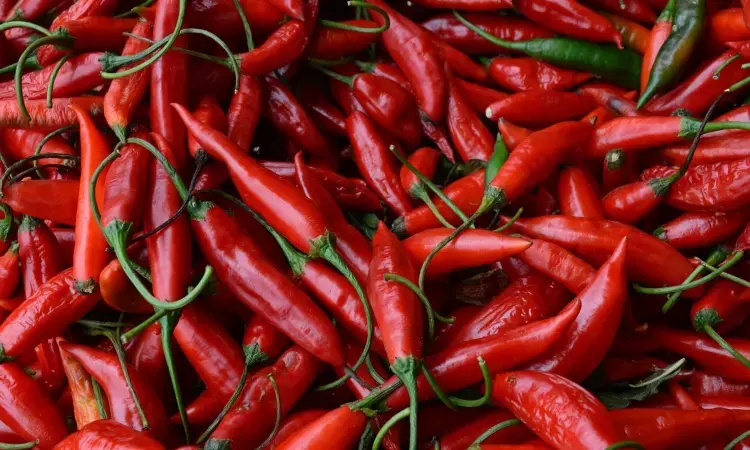- Home
- Medical news & Guidelines
- Anesthesiology
- Cardiology and CTVS
- Critical Care
- Dentistry
- Dermatology
- Diabetes and Endocrinology
- ENT
- Gastroenterology
- Medicine
- Nephrology
- Neurology
- Obstretics-Gynaecology
- Oncology
- Ophthalmology
- Orthopaedics
- Pediatrics-Neonatology
- Psychiatry
- Pulmonology
- Radiology
- Surgery
- Urology
- Laboratory Medicine
- Diet
- Nursing
- Paramedical
- Physiotherapy
- Health news
- Fact Check
- Bone Health Fact Check
- Brain Health Fact Check
- Cancer Related Fact Check
- Child Care Fact Check
- Dental and oral health fact check
- Diabetes and metabolic health fact check
- Diet and Nutrition Fact Check
- Eye and ENT Care Fact Check
- Fitness fact check
- Gut health fact check
- Heart health fact check
- Kidney health fact check
- Medical education fact check
- Men's health fact check
- Respiratory fact check
- Skin and hair care fact check
- Vaccine and Immunization fact check
- Women's health fact check
- AYUSH
- State News
- Andaman and Nicobar Islands
- Andhra Pradesh
- Arunachal Pradesh
- Assam
- Bihar
- Chandigarh
- Chattisgarh
- Dadra and Nagar Haveli
- Daman and Diu
- Delhi
- Goa
- Gujarat
- Haryana
- Himachal Pradesh
- Jammu & Kashmir
- Jharkhand
- Karnataka
- Kerala
- Ladakh
- Lakshadweep
- Madhya Pradesh
- Maharashtra
- Manipur
- Meghalaya
- Mizoram
- Nagaland
- Odisha
- Puducherry
- Punjab
- Rajasthan
- Sikkim
- Tamil Nadu
- Telangana
- Tripura
- Uttar Pradesh
- Uttrakhand
- West Bengal
- Medical Education
- Industry
Chili Pepper Intake Closely Associated with Higher Obesity Rates: Study

A recent research published in the recent issue of Frontiers in Nutrition highlighted the potential health impacts of chili intake, especially concerning overweight and obesity. This study analyzed data from the National Health and Nutrition Examination Survey (NHANES) 2003-2006 and revealed a significant correlation between the frequency of chili consumption and higher body mass index (BMI) and obesity prevalence among American adults.
This comprehensive study focused on a total of 6,138 participants who had provided complete information regarding their chili intake and BMI. The study clarified that higher frequency of chili consumption could be associated with increased BMI and a greater likelihood of obesity. The results indicated a clear relationship between frequent chili consumption and higher BMI values, along with an increased prevalence of obesity.
The participants who consumed chili most frequently had a multivariate-adjusted β of 0.71 for BMI and an odds ratio (OR) of 1.55 for obesity when compared to the individuals who did not consume chili. These findings were derived from a fully adjusted model, accounting for various potential confounders. The positive association between chili intake and obesity was particularly more observed among females and older adults who were above 60 years of age. This also suggests that demographic factors may influence how chili consumption affects weight and health.
The outcomes of the study illuminates a potential public health concern regarding the frequent consumption of chili. While chili peppers are often celebrated for their flavor and potential metabolic benefits, this study suggests that high level consumption might be linked to weight gain and obesity. The moderation in chili intake could be a consideration for the individuals who are looking forward to efficiently manage their weight.
These findings underline the complex relationship between diet and health. While chili peppers contain beneficial compounds like capsaicin, which can boost metabolism, their frequent consumption may contribute to higher BMI and obesity rates. This research provides valuable insights by suggesting that controlling chili intake frequency might be an additional strategy for weight management.
As dietary habits continue to be a point of addressing the obesity epidemic, the studies like this highlight the importance of considering the broader impacts of specific foods on overall health. Further research and dedicated studies may be necessary to explore the underlying mechanisms and to confirm these findings in different populations.
Source:
Liu, M., Zhu, Y., & Wang, F. (2024). Does chili pepper consumption affect BMI and obesity risk? A cross-sectional analysis. In Frontiers in Nutrition (Vol. 11). Frontiers Media SA. https://doi.org/10.3389/fnut.2024.1410256
Neuroscience Masters graduate
Jacinthlyn Sylvia, a Neuroscience Master's graduate from Chennai has worked extensively in deciphering the neurobiology of cognition and motor control in aging. She also has spread-out exposure to Neurosurgery from her Bachelor’s. She is currently involved in active Neuro-Oncology research. She is an upcoming neuroscientist with a fiery passion for writing. Her news cover at Medical Dialogues feature recent discoveries and updates from the healthcare and biomedical research fields. She can be reached at editorial@medicaldialogues.in
Dr Kamal Kant Kohli-MBBS, DTCD- a chest specialist with more than 30 years of practice and a flair for writing clinical articles, Dr Kamal Kant Kohli joined Medical Dialogues as a Chief Editor of Medical News. Besides writing articles, as an editor, he proofreads and verifies all the medical content published on Medical Dialogues including those coming from journals, studies,medical conferences,guidelines etc. Email: drkohli@medicaldialogues.in. Contact no. 011-43720751


